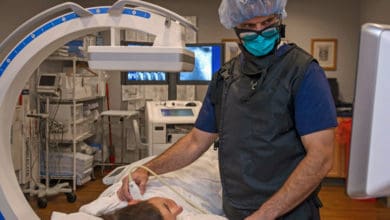If you want to become a pediatrician, let’s explore the level of competitiveness in matching into a pediatric residency. Pediatrics is the branch of medicine that involves the medical care of diseases. The American Academy of Pediatrics recommends people be under pediatric care through the age of 21.
Statistics on the Pediatrics Match
In 2022, pediatrics had a total of 3,153 applicants and 3,016 spots. This equates to 1.05 applicants per position. Of the 1,655 U.S. MD seniors who applied, 27 did not match.
| Total Positions | Total Number of Applicants | Number of Applicants per Position |
| 3,016 | 3,153 | 1.05 |
Osteopathic (DO) Students Matching into Pediatrics
In 2022, the total number of DO Senior Applicants was 585. Of those, 565 matched, for a 96.58% match percentage. This makes pediatrics a Very Friendly field for osteopathic students.
| Total DO Applicants | Matched DO Applicants | DO Match Percentage | |
| 585 | 565 | 96.58% |
International Medical Graduates (IMGs) Matching into Pediatrics
Because there are only 0.59 U.S. MD applicants per 1 program spot, pediatrics is considered to be Very Friendly for IMGs students.
Honors, Research and Awards for Pediatrics Residency Candidates
The average matched U.S. applicant had 9.3 volunteer experiences and 3.3 work experiences. They had 2.9 research experiences and 5.6 abstracts, presentations and publications. That makes this specialty on where the number of publications needed is Low.
| Research Experiences | Abstracts, Presentations and Publications | Work Experiences | Volunteer Experiences |
| 2.9 | 5.6 | 3.3 | 9.3 |
Average Step 1 and Step 2 Scores for Pediatrics
The mean U.S. Step 1 score for matched medical students in pediatrics was 230. The mean USMLE Step 2 CK score was 245.
Overall Competitiveness of Pediatrics Residency and Chances of Matching
The overall competitiveness level of pediatrics is Low for a U.S. senior. With a Step 1 score of 200, the probability of matching is 95%. With a Step 1 score of >240, the probability is 100%.
How long is a residency in pediatrics? What is the lifestyle like for a pediatrics resident?
Compared to other residencies, pediatrics has a Short training length. As far as lifestyle, pediatricians generally have a Low stress lifestyle. Of course, lifestyle is very subjective and if you love what you do, it does not matter! And if you hate what you do, it can still be rough no matter what. In medicine, you should find the specialty that makes you enjoy your everyday interactions with patients, staff and colleagues.
What is the average salary for a pediatrician?
The average salary post-graduation from a pediatrics residency is $232,000, provided one does not go on to sub-specialty training which can change the salary substantially. Academic versus private practice as well as location also play a large role in physician compensation.
What are fellowships one can do from a pediatrics residency?
Following the successful completion of general pediatrics residency, some physicians may choose to continue their graduate medical education with subspecialty training. Board-certified subspecialists complete additional training and qualifying examinations beyond those required for board certification in pediatrics. Currently, the American Academy of Pediatrics certifies the following fellowships:
-
-
- Adolescent Medicine
-
What are the best pediatrics residencies in the country?
The best residency for pediatrics, or any specialty, is very driven by personal preference and situation. How close you are to family, loved ones, the type of training environment, the opportunities available are all things to take into consideration above and beyond name recognition of a program. However, there are some highly regarded names in the world of pediatrics including:
-
- Boston Children’s Hospital
- Children’s Hospital of Pennsylvania
- Stanford
- UCLA
- University of Cincinnati
Much of the data above is available from the AAMC Charting the Outcomes report.
Explore Other Specialties:
| Specialty | Average Step 1 Score (Matched) | Average Step 2 Score (Matched) |
|---|---|---|
| Anesthesiology | 234 | 246 |
| Child Neurology | 233 | 246 |
| Dermatology | 248 | 256 |
| Diagnostic Radiology | 241 | 249 |
| Emergency Medicine | 233 | 247 |
| Family Medicine | 221 | 238 |
| General Surgery | 237 | 249 |
| Internal Medicine | 235 | 248 |
| Internal Medicine/Pediatrics | 236 | 250 |
| Interventional Radiology | 247 | 255 |
| Neurological Surgery | 248 | 252 |
| Neurology | 232 | 245 |
| Obstetrics and Gynecology | 232 | 248 |
| Orthopaedic Surgery | 248 | 255 |
| Otolaryngology | 248 | 256 |
| Pathology | 233 | 242 |
| Pediatrics | 228 | 245 |
| Physical Medicine and Rehabilitation | 228 | 241 |
| Plastic Surgery | 249 | 256 |
| Psychiatry | 227 | 241 |
| Radiation Oncology | 243 | 250 |
| Vascular Surgery | 239 | 247 |



